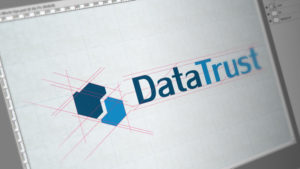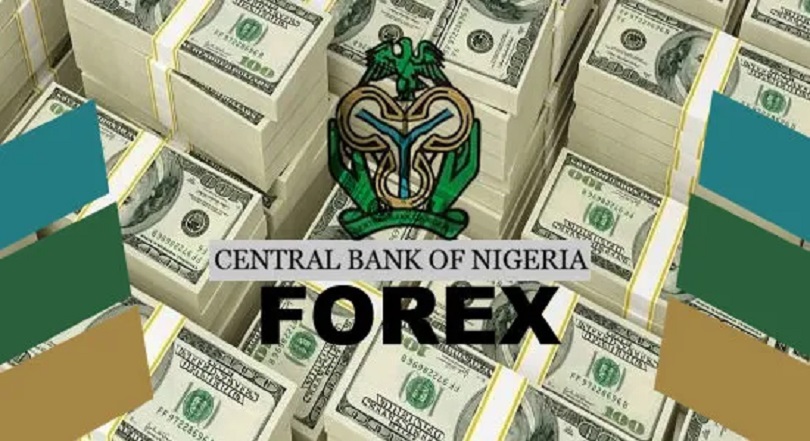Economy
Economic Recession Outcome of Monetary, Fiscal Policy Failure—Report


By Mike Uzor
The latest edition of Nigeria Banking & Economy 2016, a publication of Datatrust Consulting Ltd, a firm of financial analysts, has been released.
The research report, which is an x-ray of the Nigerian economy and the banking industry, found a major link between the ravaging economic recession and delayed fiscal action on the part of government.
Inability to move decisively on the path of stimulatory intervention, rather than lack of funds, is the main factor that let the slowing economy plunge into a recession in 2016.
With the long delay in approving the 2016 budget, the fiscal authorities failed to provide the critical fiscal stimulus at the same time that monetary policy remained stringent.
Datatrust economists also affirm that the policy of treasury single account hindered the ability of monetary policy to sustain the flow of goods and services within the economy.
Nigeria’s economy in 2016 experienced a macroeconomic policy lull during which neither fiscal nor monetary policy was effectively deployed to sustain the momentum of the nation’s economic activities.
Efforts to prevent economic decline requires swiftness in order to keep production and consumption functions streaming at normal speed. Nigeria missed the critical point of stimulatory intervention to avert economic recession.
Banks were hindered from helping businesses, the capital market windows remained shut and government held back the much needed stimulatory spending force.
The outcome was a financially arid economy in which both producers and consumers lacked adequate liquidity to operate optimally.
The broken capacity of the capital market as a source of new money is a major factor in the cash flow problems facing companies.
The painstaking analysis, running to over 140-pages, identified a combination of monetary and fiscal stimulus as the effective therapy to end economic recession.
The annual publication offers government and regulators policy options based on research findings for addressing critical issues in the economy and the banking sector.
The report takes a special focus on the effects of macroeconomic developments and regulatory policies on the banking sector that constitutes the nerve centre of the economy.
Datatrust study finds that the banking sector has come under much regulatory strain once again even as it was yet to recover fully from the effects of the last global financial crisis.
A sudden enforcement of government’s treasury single account policy has put banks under an unplanned liquidity pressure, which has forced them to liquidate earning assets.
The results are a major slowdown in revenue growth and decline in the size of the balance sheet. It is evidently a wrong time to run a policy that stems the growth in bank lending to an economy in decline.
The general decline in economic activity has again exposed banks to a major operating pressure – loan recovery difficulties.
Rising loan loss expenses at a time of inability to grow revenue is the explanation for declining profit margin, falling profits and losses.
These developments have warranted a cost cutting bandwagon among banks, including layoffs, which are rather reinforcing the economic recession from the angle of domestic consumption.
Assurances that Nigeria will be out of recession in 2017 need to be supported by convincing new policy actions and the authorities need to show the policy transmission mechanism that would lead to reversing these adverse economic trends in the production and consumption functions of the economy.
Money and capital market windows need to be expanded to complement the highly devalued government spending in stimulating economic activity.
Many banks have been trying to achieve full recovery and to resume growth since the downturn induced by the global financial crisis.
Those efforts have been scuttled by the present policy environment so that they are struggling for survival breathes once again.
Policymakers have, as usual, continued to give assurances of good health for the banks; they need to back up their words with policies that empower both banks and their customers.
The banking sector provides the largest meeting point of savers and investors and therefore serves as the nerve centre of the nation’s financial intermediation. It therefore needs to be saved from the type of violent regulatory policy changes to which it is continually exposed.
The report shows details of how each bank is responding to the operating and regulatory challenges and performance prospects going forward. It used a five-year track record of income statements and balance sheets of banks to establish the major operating trends.
With average industry ratio benchmarks, the report makes it clear to see how each bank’s figures compare or contrast from the general industry picture.
The general industry trends as well as individual banks conditions are provided to guide regulatory policies towards ensuring stability and healthy growth in the banking sector. They also provide a reliable guide to strategic decisions and actions on the part of the banks themselves.
The study also shows the various competitive leagues in the banking industry such as leadership by the size of the balance sheet, gross income and profit, etc. The performance charts show the ability to convert assets into revenue and revenue into profit. The analysis brings out clearly each bank’s cost to income relationship and shows how it is either helping or hitting the bottom line.
A major worrisome trend defined by the report is the rapidly growing proportion of revenue devoted to loan loss expenses. This is an unhealthy trend that needs to be checked in order to encourage new lending.
The bearish trend the stock market has taken on banking stocks is a reflection of the uncertain earnings outlook of the sector and regulators cannot afford to ignore this signal. A situation where the banking industry giants have virtually become penny stocks cannot be safely ignored.
Mike Uzor is the Chief Financial Analyst at Datatrust Consulting Ltd
Economy
NCDMB Issues NCEC Guidance Notes to Ease Oil Contracts, Cut Production Costs

By Adedapo Adesanya
The Nigerian Content Development and Monitoring Board (NCDMB) says it has issued the Nigerian Content Equipment Certificate (NCEC) guidance notes to speed up oil and gas industry contracting processes, weed out firms lacking technical capacity to perform, and to reduce Nigeria’s cost of oil production.
The document forms part of concerted efforts to operationalize the Presidential Directives (PDs) on Local Content Requirements, which mandates NCDMB to take further steps to eliminate intermediaries in the contracting process, lacking demonstrable capacity.
Emphasising that one of the key requirements for participating in the Nigerian oil and gas industry contracting process is the possession of NCECs issued by the NCDMB, the document states that “Unmerited possession and/or misapplication of the NCECs during tendering/bid evaluations contribute to contracting delays and admittance of unqualified intermediaries into the contracting process”.
According to NCDMB, the goal of the new document is to “tackle cases of single and multiple NCEC applications not matched to capacities on ground, submission of fake/forged documents, under declaration of personnel, non-existent offices/equipment, and many other dubious applications.”
It will also enhance timely review and approval of applications from genuine service companies as the document provides all the requirements needed to complete credible application at first attempt.
The eight NCEC categories cover Manufacturing & Related Services (MS); Fabrication & Construction (FC); Construction & Moveable Equipment (EC); Services & Support (SS); Quality Control Inspection and Testing (QS); Non-Moveable Assets (DA); Procurement & Supplies (PS); and Consultancy Services (CS).
The document advised service companies to provide details of their specific service offering with sufficient supporting evidence while applying for any of the NCEC categories via the application portal. Providing further explanation, NCDMB stressed that it does not solicit or require any payment for the application, processing, or approval of NCEC or any of its certifications.
It added that “in line with the Presidential directive on Local Content compliance, NCDMB prohibits the use of agents/middlemen/third parties in raising/submission of NCEC application on behalf of service companies. Service Companies registered on the NOGIC-JQS are liable for any claims/documentations submitted in support of application for NCEC or any other NCDMB certifications using their assigned login in details.”
The document also indicated that companies and their subsidiaries or local partners cannot apply for or obtain NCEC as separate companies using the same facilities, equipment, assets, or documentation and NCEC is not transferable for use by another company.”
Continuing, the guidance notes enjoined service companies to only apply for NCECs based on their core service area, noting that spurious applications contribute to delays in the processing of genuine applications, warning that cases determined to constitute abuse of NCEC applications shall attract applicable sanctions.
The NCEC notes also indicated that companies applying for multiple NCECs must have the capacities in terms of assets, facilities, equipment and personnel to execute the scope of activities under the target NCEC categories, adding that NCDMB will carry out facility visits to ascertain the capacities and capabilities claimed by the company in all the multiple NCEC applications.
It stated further that NCECs are not granted in anticipation of establishment of local capacities but are approved based on functional equipment/assets with dedicated resources/utilities in place to operate or perform the services, hence applicants must be ready to demonstrate operability and availability of owned assets/equipment as may be required during facility visit by NCDMB team.
The document also listed services which do not require NCECs. They include GSM service providers, commercial airlines, educational institutes, legal advisory services, public relations and events management, government agencies, and CSR projects with community vendors.
Speaking on the guidance notes, the Executive Secretary of NCDMB, Mr Felix Ogbe enjoined oil and gas stakeholders to study the guidance notes while applying for NCECs, warning that submission of forged, altered, or falsified documents constitutes a criminal offence and will attract legal consequences as well as board’s administrative punishments.
He noted that NCDMB had set target timelines for the review and processing of NCEC applications, with the portal providing timestamp of all activities/interactions undertaken from the point of submission of application and all reviews by the board.
Economy
Nigeria’s Forex Reserves Now $49bn on Reforms—Cardoso

By Adedapo Adesanya
The Governor of the Central Bank of Nigeria (CBN), Mr Yemi Cardoso, has disclosed that Nigeria’s external reserves have risen to about $49 billion as of February 5, 2026, describing the development as a clear sign of improving confidence in the country’s economy.
Mr Cardoso spoke on Monday in Abuja at the second edition of the National Economic Council (NEC) conference, where he explained that the growth in reserves represents a 4.93 per cent increase from the last figure of $46.7 billion which marks a major turnaround from what the country faced when the current leadership took over the apex bank.
“This is obviously a very important statistic,” Mr Cardoso said. “When we took over, the net reserve figure was about $3 billion. As at the end of last year, the net reserve figure had gone up strongly into the 30s. And as I said, as of February 5, 2026, it is $49 billion. We are now net buyers.”
He explained that the central bank now allows the foreign exchange market to largely determine prices, while the bank steps in to buy foreign exchange when necessary. According to him, this approach has helped to close the gap between the official and parallel market exchange rates. “The premium between the official and parallel market rates has collapsed to under two per cent,” he said.
Mr Cardoso said remittances from Nigerians living abroad have played a major role in boosting the country’s foreign reserves. He noted that Nigerians in the diaspora come from all parts of the country and are keen to support the economy by sending money home.
“Remittances have made a big difference to how we have grown our reserves,” he said. “The diaspora come from every single state represented here. We have engaged with them and made it easier for them to remit money back to Nigeria.”
He added that the cooperation of state governors and other leaders would be crucial in sustaining this progress in the coming years.
The CBN helmsman said recent reforms have also made foreign exchange more accessible to ordinary Nigerians, especially those travelling abroad.
“When people travel now, you don’t have to look for foreign exchange to travel,” he said. “You use your Naira card and pay for whatever you want. Now the Naira is more competitive and people are not afraid to hold Naira.”
He warned Nigerians who are holding foreign currency without real need that such actions could lead to losses.
“Those holding unnecessary foreign exchange reserves are losing money every day,” he said.
Economy
Six Price Gainers Rally OTC Securities Exchange by 2.09%

By Adedapo Adesanya
Six price gainers lifted the NASD Over-the-Counter (OTC) Securities Exchange by 2.09 per cent on Monday, February 9, amid a surge in activity level.
According to data, the volume of securities significantly increased by 3,499.1 per cent to 13.3 million units from the 384,784 units recorded in the preceding trading session, as the value of securities soared by 518.0 per cent to N99.3 million from N16.1 million, and the number of deals moved up by 95.8 per cent to 47 deals from the preceding session’s 24 deals.
Central Securities Clearing System (CSCS) Plc ended the day as the most active stock by value on a year-to-date basis with 16.9 million units exchanged for N699.9 million, followed by Geo-Fluids Plc with 23.2 million units valued at N123.6 million, and FrieslandCampina Wamco Nigeria Plc with 1.8 million units traded for N118.5 million.
However, Geo-Fluids Plc became the most traded stock by volume on a year-to-date basis, with 23.2 million units worth N123.6 million, as CSCS Plc was pushed down the pecking order as second with 16.9 million units transacted for N699.9 million, while Mass Telecom Innovation Plc sold 15.1 million units for N6.1 million.
The price gainers were led yesterday by Okitipupa Plc after it gained N17.00 to trade at N237.00 per share versus the previous price of N220.00 per share, FrieslandCampina Wamco Nigeria Plc added N6.00 to sell at N66.00 per unit versus N60.00 per unit, and CSCS Plc grew by N5.35 to N58.85 per share from N53.50 per share.
Further, IPWA Plc appreciated by 23 Kobo to N2.59 per unit from N2.36 per unit, UBN Property Plc increased its value by 19 Kobo to N2.19 per share from N2.00 per share, and Industrial and General Insurance (IGI) Plc advanced by 5 Kobo to 59 Kobo per unit from 54 Kobo per unit.
However, Nipco Plc lost N9.00 on Monday to close at N250.00 per share versus last Friday’s price of N259.00 per share, and Geo-Fluids Plc dipped by 22 Kobo to N4.08 per unit from N4.30 per unit.
At the close of business, the market capitalisation of the bourse was up by N46.2 billion to N2.253 trillion from N2.207 trillion, and the NASD Unlisted Security Index (NSI) jumped 77.22 points to 3,766.94 points from 3,689.72 points.
-

 Feature/OPED6 years ago
Feature/OPED6 years agoDavos was Different this year
-
Travel/Tourism9 years ago
Lagos Seals Western Lodge Hotel In Ikorodu
-

 Showbiz3 years ago
Showbiz3 years agoEstranged Lover Releases Videos of Empress Njamah Bathing
-

 Banking8 years ago
Banking8 years agoSort Codes of GTBank Branches in Nigeria
-

 Economy3 years ago
Economy3 years agoSubsidy Removal: CNG at N130 Per Litre Cheaper Than Petrol—IPMAN
-

 Banking3 years ago
Banking3 years agoSort Codes of UBA Branches in Nigeria
-

 Banking3 years ago
Banking3 years agoFirst Bank Announces Planned Downtime
-

 Sports3 years ago
Sports3 years agoHighest Paid Nigerian Footballer – How Much Do Nigerian Footballers Earn












